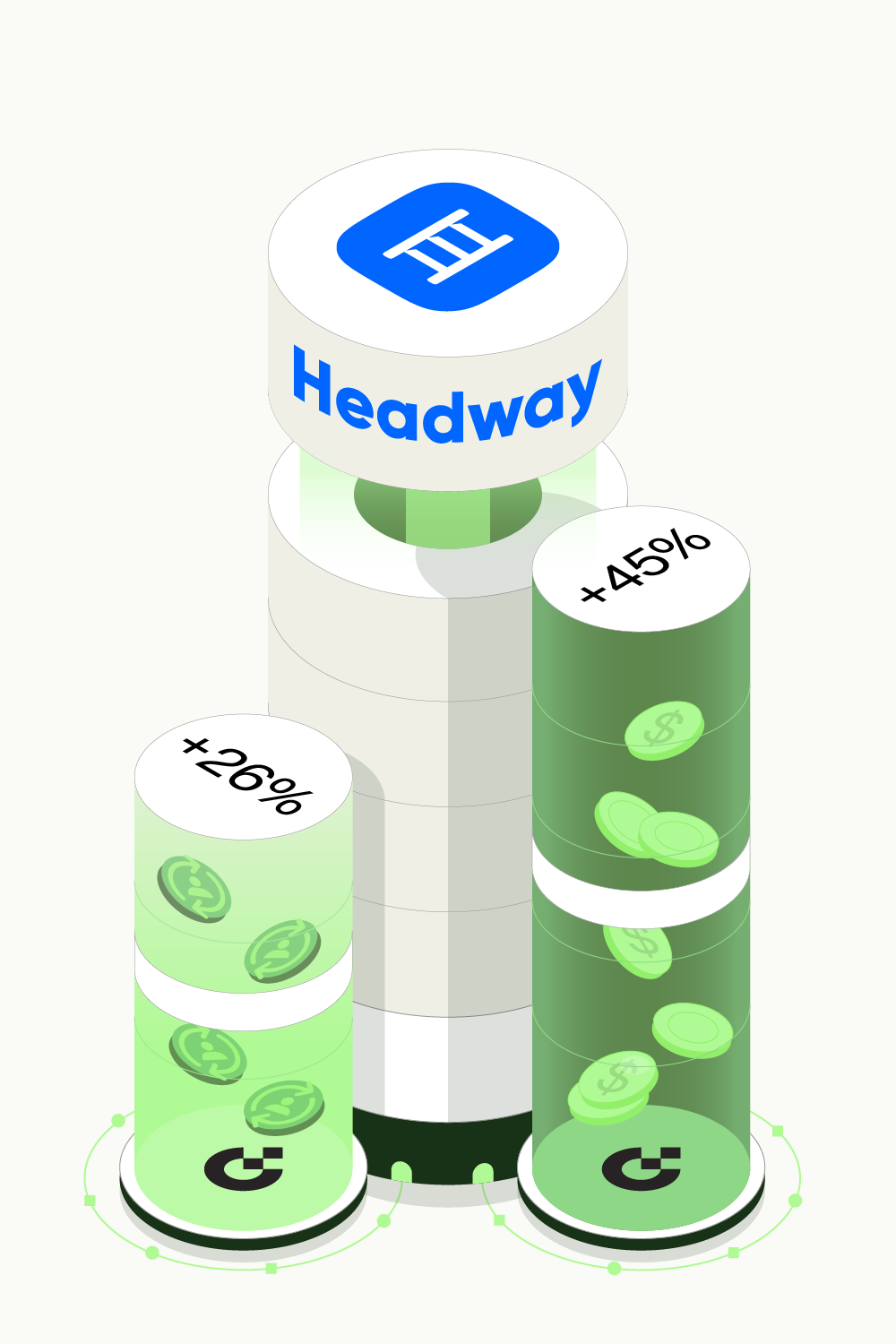Headway, a leading self-improvement and book summary app, wanted to scale its Meta ad campaigns to acquire users who bring long-term value, not just short-term trials. By integrating Churney’s predictive models, Headway shifted its optimization strategy from early conversions to users predicted to stay and pay. The result was a +45% increase in Day 30 ROAS and a +26% increase in paid subscriptions compared to Headway's standard conversion event.

With over 50 million users in 170+ countries, the Headway app is the world's most downloaded book summary app. The app was launched by Headway Inc, a global tech company that revolutionizes lifelong learning. Headway app offers 15-minute audio and text summaries of nonfiction bestsellers, as well as daily microlearning sessions and gamified challenges. It is designed to help people achieve their self-development goals and embrace daily growth. Headway received the Editor's Choice award from the US App Store and constantly hits the App Store home screen as App of the Day.
Headway aimed to scale its Meta campaigns efficiently - while growing the customer base -, ensuring new users would maximize long-term subscription revenue.
Shifting the focus from short-term actions to long-term outcomes.
Headway’s primary conversion was a trial+paid subscription event. Standard Meta optimization, which typically focuses on a 7-day window, couldn't "see" the most valuable conversions - as most paid subscriptions happen after the initial 7-day free trial.This data gap meant Meta’s algorithm was mostly optimizing for trial sign-ups, not necessarily for users who would actually become paying subscribers. This limited Headway's ability to scale campaigns profitably based on true, long-term value.
Churney built a predictive lifetime value (pLTV) model using Headway’s historical user data. The model identified key early behaviors and signals linked to users who were highly likely to convert to a paid subscription.Using this model, Churney created a new, high-quality conversion signal to send to Meta. This "pLTV event" allowed Meta to optimize for users predicted to become valuable, long-term subscribers, even if their payment fell outside the 7-day window.The experiment ran for over a month on Meta Web2App campaigns, testing Churney’s predictive signal against Headway’s business-as-usual (BAU) setup.
By optimizing for predicted LTV instead of just trial starts, Churney's campaigns delivered significant gains compared to the BAU control group.
Why It Worked



Your data warehouse has incredible value. Our causal AI helps unlock it.